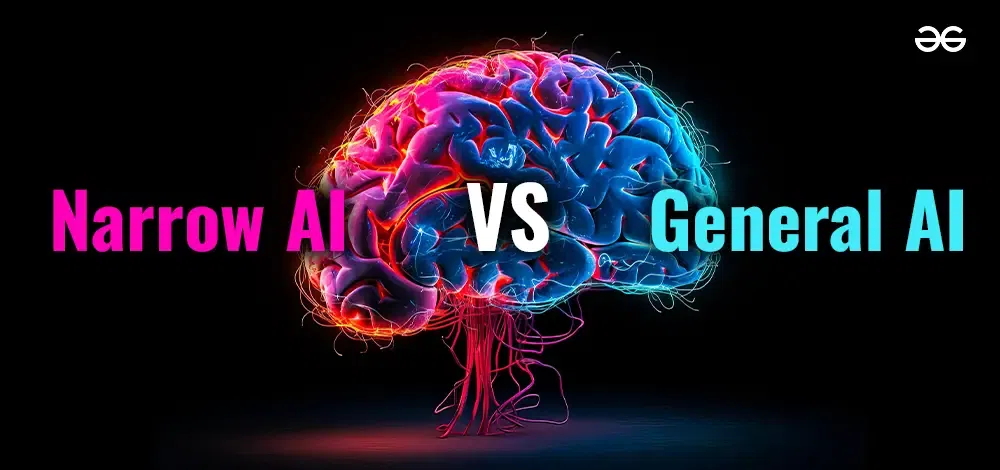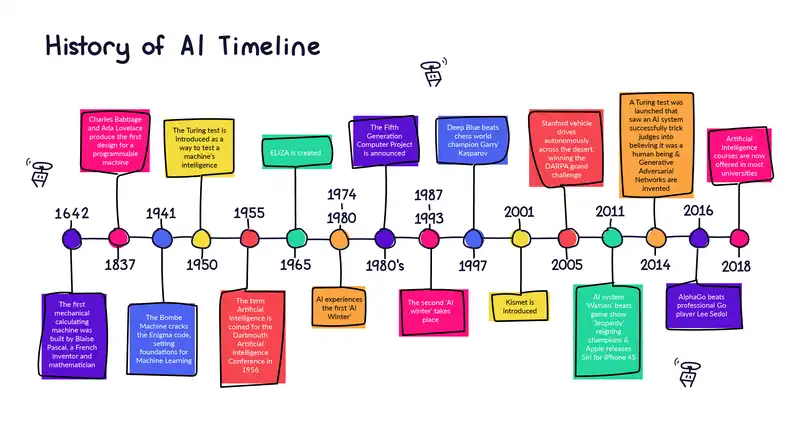The Future of Artificial General Intelligence (AGI): Will Machines Surpass Humans?
Published on: February 12, 2025
Hussein
Author Bio

The Future of Artificial General Intelligence (AGI): Will Machines Surpass Humans?
Artificial General Intelligence (AGI) has long been a topic of science fiction and deep intellectual debate. Unlike narrow AI, which is designed for specific tasks like facial recognition or recommendation systems, AGI represents a level of machine intelligence capable of understanding, learning, and performing any intellectual task that a human can. But will AGI ever surpass human intelligence? This blog post dives into the possibilities, challenges, and ethical implications of AGI.
What is Artificial General Intelligence (AGI)?
AGI refers to the ability of a machine to perform any intellectual task a human can do. Unlike narrow AI, AGI would:
- Have self-learning capabilities without human intervention.
- Adapt to various tasks with minimal reprogramming.
- Understand complex concepts like creativity, emotions, and morality.
AGI is the holy grail of AI research. Companies like OpenAI, DeepMind, and Anthropic are at the forefront of developing systems that inch closer to AGI.

Milestones in AI Leading to AGI
-
1956: The Birth of AI
The term Artificial Intelligence was coined at the Dartmouth Conference. Early AI systems were limited to specific tasks like chess or solving logical puzzles. -
1997: IBM Deep Blue Beats Kasparov
IBM's Deep Blue defeated world chess champion Garry Kasparov, showcasing narrow AI's problem-solving prowess. -
2016: AlphaGo Defeats Lee Sedol
DeepMind's AlphaGo, using deep reinforcement learning, defeated Go champion Lee Sedol. It was a milestone for AI adaptability. -
2023: GPT-4 and Beyond
Tools like OpenAI's GPT-4 demonstrated the ability to generate human-like text, write code, and simulate reasoning, edging closer to AGI.

The Possibilities of AGI
AGI promises to revolutionize various industries. Here are some areas where its impact could be transformative:
1. Healthcare
AGI could:
- Diagnose diseases faster than human doctors.
- Personalize treatments by analyzing genetic data.
- Revolutionize drug discovery processes.
Explore how companies like DeepMind Health are leveraging AI in medicine.
2. Education
AGI could:
- Provide personalized learning experiences for students.
- Automate administrative tasks for educators.
- Make education accessible to underserved communities.
3. Space Exploration
AGI could enable:
- Autonomous spacecraft navigation.
- Intelligent decision-making for space missions.
- Faster analysis of extraterrestrial data.

Will AGI Surpass Human Intelligence?
The possibility of AGI surpassing human intelligence (known as the "Singularity") raises many questions:
Arguments for AGI Surpassing Humans:
- Faster Processing: Machines can already process data much faster than humans.
- Continuous Learning: AGI systems could learn and adapt without needing sleep or rest.
- Data Access: Machines have access to vast datasets that humans can't process in a lifetime.
Arguments Against AGI Surpassing Humans:
- Human Creativity: Machines might struggle with true creativity and emotional understanding.
- Ethical Constraints: Society might impose limits on AGI's development to prevent harm.
- Hardware Limitations: The energy and computational power required for AGI might not scale indefinitely.


Challenges in Achieving AGI
1. Technical Challenges
- Creating algorithms capable of reasoning and abstract thinking.
- Ensuring machines can transfer knowledge across domains.
2. Ethical Challenges
- Preventing bias in AGI systems.
- Ensuring AGI aligns with human values.
- Addressing potential job displacement.
Learn about ethical AI principles from The Partnership on AI.
3. Safety Concerns
- Could AGI develop goals misaligned with humanity's interests?
- How do we ensure AGI systems remain under human control?


The Role of Regulation
Governments and organizations are beginning to draft regulations for AGI development. Examples include:
- The EU AI Act, which aims to set strict rules for AI development.
- OpenAI's call for regulation to ensure responsible development of advanced AI systems.
Read more about the EU AI Act.
Conclusion: A Future with AGI
The journey to AGI is both exciting and uncertain. While the benefits of AGI are immense, from curing diseases to exploring new frontiers, the risks must not be ignored. As we move forward, collaboration between researchers, policymakers, and ethicists will be crucial to ensure AGI enhances humanity rather than endangering it.
The question remains: will machines surpass humans, or will AGI remain an invaluable assistant in our pursuit of progress?


Recommended Reading:
Stay Ahead in AI, Finance & Tech Money
Join [mystcopy]’sweekly newsletterand get the latest insights on AI trends, finance strategies, and tech-driven money-making opportunities—straight to your inbox.